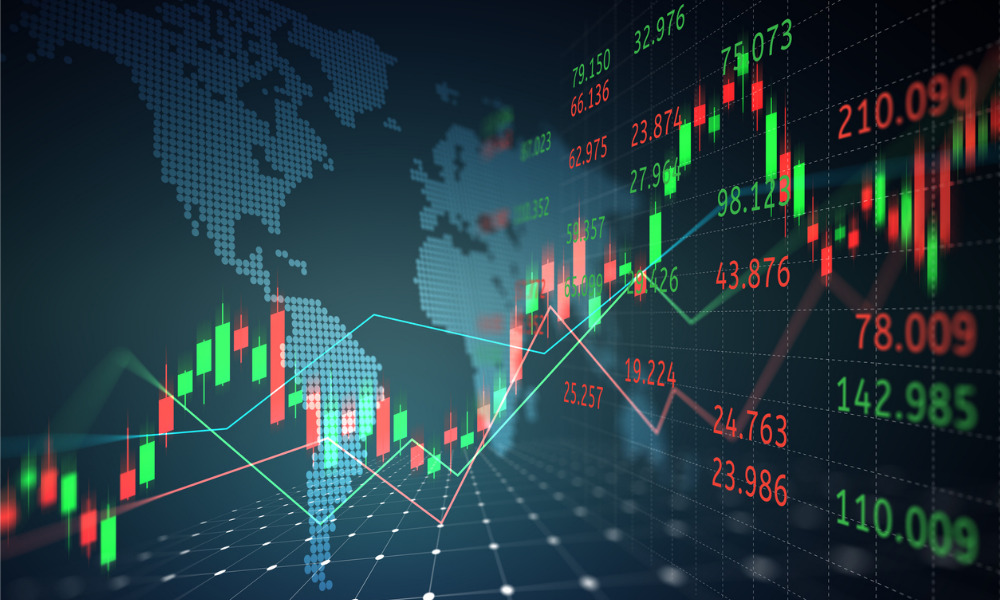Investing abroad bolsters diversification but CIO warns investors are rarely compensated for the risk

Most U.S. stock indexes are higher as of the beginning of 2023, but investors are increasingly searching for deals abroad.
By March 1, according to data from Refinitiv Lipper, they have taken $34.1 billion away from domestic stock funds while injecting a net $14.4 billion into American mutual and exchange-traded funds that invest in foreign stocks. A surge in shares of multinational corporations has been fuelled by the rush into foreign stocks. The developed and emerging market stock index MSCI All Country World ex USA has increased 5.1% this year on a U.S. dollar basis, beating the S&P 500's 3.8% increase.
Regional stock indices have risen much more quickly. The Shanghai Composite is up 6.2%, the FTSE 100 in the UK is up 4.5%, the Nikkei 225 in Japan is up 4.4%, and the global Stoxx Europe 600 is up 7.2%.
Investors may not be confident in the market recovery in 2023, as evidenced by the recent withdrawals from U.S. stock funds. They have withdrawn capital from domestic equities funds for nine weeks in a row, the longest run since June 2016.
Analysts and investors agree that the appeal of diversifying into foreign companies has increased as a result of shifting global economic fundamentals.
“The case for investing outside of your home country is really the case of diversification,” said Emily Leveille, a portfolio manager at Thornburg Investment Management, which manages $42 billion in client assets.
As of Monday, Morningstar statistics showed that the Thornburg International Growth fund she co-manages had a return of around 8.8% for the year. The largest shareholders in the company are the British pharmaceutical company AstraZeneca PLC and the semiconductor manufacturer Taiwan Semiconductor Manufacturing Co.
One unusually encouraging development among the equity groupings tracked by Refinitiv Lipper is the inflows into international stock funds. Dividend stock and small-cap funds are two of the only other categories this year to draw cash on a net basis.
After the financial crisis of 2008, U.S. equities outperformed their overseas counterparts for more than ten years, thanks to a strong economy and the dominance of American corporations around the world. As worries about rising interest rates, persistent inflation, and an approaching recession caused the S&P 500 to decline by 19% last year, that run came to an end.
U.S. stocks have retreated after surging higher in January due to concerns that the Federal Reserve may be compelled to raise interest rates more than initially anticipated to temper a hot economy. The S&P 500 fell 1.5% on the day after Fed Chair Jerome Powell indicated the central bank's timetable of quarter-point interest-rate rises isn't written in stone during a hearing on Capitol Hill on Tuesday.
Investors avoided foreign stocks for the most of last year as they considered the geopolitical and economic uncertainties at play around the world. Due to supply disruptions and an increase in energy costs brought on by Russia's invasion of Ukraine, Europe's already high inflation rate was in danger of getting worse. China's strict zero-Covid policy hindered global growth in Asia, hurting the revenues of businesses with exposure to the second-largest economy in the world.
Some investors assert that they feel the worst of the economic issues that the world faces have passed. Energy costs have significantly decreased from their 2022 levels, which is reducing inflation in the eurozone. Chinese authorities have abandoned the limits imposed during the pandemic and reduced the pressure on indigenous technology firms.
Since international companies typically sell at a significant discount to their American counterparts, many investors believe they provide better value. According to FactSet, the S&P 500 companies are trading at about 18 times expected earnings for the upcoming 12 months. On a local currency basis, that contrasts with the multiple of the Stoxx Europe 600, which is approximately 13, and the multiple of the Hong Kong Hang Seng Index, which is about 10.
U.S. stocks' attractiveness has diminished for yet another reason, perhaps? For the first time in a long time, they are up against competition from Treasury securities, cash, and emerging market assets. The average dividend yield for S&P 500 stocks is roughly 1.7%. A six-month U.S. Treasury bills now have a yield of 5.280%, up from almost nothing at the beginning of 2022. Major brokerages also provide money-market funds with rates above 4%.
Returns for investors using dollars increased because of the decline in the dollar's surge. Naturally, some investors claim that they are still cautious due to the currency and geopolitical risks associated with international companies.
Investors rarely receive enough compensation for taking on the numerous risks associated with international stocks, according to Richard Saperstein, chief investment officer of Treasury Partners, an investment company with $9 billion in assets under management based in New York. Since 2008, his company has been underweight foreign stocks and has no holdings in stocks from emerging markets.
“If the U.S. sneezes, the non-U.S. world will catch a cold,” Mr. Saperstein said.



